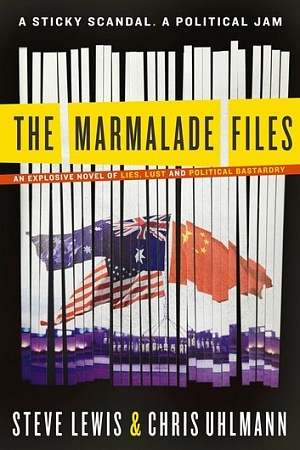Flyaway
Picador, $24.99 pb, 188 pp
Violent hearts
At the heart of every fairy tale, there is violence: Snow White’s stepmother calling for her heart on a platter, Cinderella’s sisters mutilating their feet to fit the silver shoe. ‘All the better to eat you with, my dear,’ says the wolf, his belly already stuffed with grandmother’s flesh. From this bloodletting, the fairy tale tries to spin something wondrous, turning straw into gold and men into beasts.
In Flyaway, Kathleen Jennings has woven the conventions of a fairy tale into something new, transforming the Australian bush into a haunted forest. The novel begins in the dwindling town of Runagate, where nineteen-year-old Bettina Scott is living a half-life since the disappearance of her father and brothers. She spends her days minding the house and tending the garden, trapped under the gaze of her reclusive, fey mother – until a cryptic accusation is splashed across their front fence, startling Bettina into both action and remembrance.
The search for her brothers takes Bettina across the borders of Runagate and into the silent outback beyond. Here, a complex web of stories unfolds. A strange woman recalls what happened in the neighbouring town of Woodwild, where children were spirited away in the night. A farmer looks through a window to see himself sitting there with his wife, this other-self grinning ‘with sharp, gleaming teeth’. Bit by bit, the real monsters are unveiled: familial abuse and intergenerational rivalry, laced with the residual violence of colonialism (‘not stained by massacres, no, nor cursed, whatever people whispered about how the Spicer family first established Runagate Station’).
Jennings has a real gift for prose, her sentences pleasurably thickened with images of glitter and decay: ‘Trees bled resin like rubies, sprouted goitrous nests, suspended cat’s cradles of spiderwebs, spinning disks of silk.’ Here and there, we encounter aphorisms of startling beauty: ‘A civilised, bone-china soul knows, as a bird does, that a heavy-footed, shouting man is a thing to be fled.’ And yet, as with all fairy tales, the novel hints that something savage and depressingly familiar lurks beneath its magical trappings. Flyaway is a novel that knows any story is only as truthful as the person who tells it; that the tale itself survives as a parasite does, jumping from person to person and host to host.











Leave a comment
If you are an ABR subscriber, you will need to sign in to post a comment.
If you have forgotten your sign in details, or if you receive an error message when trying to submit your comment, please email your comment (and the name of the article to which it relates) to ABR Comments. We will review your comment and, subject to approval, we will post it under your name.
Please note that all comments must be approved by ABR and comply with our Terms & Conditions.